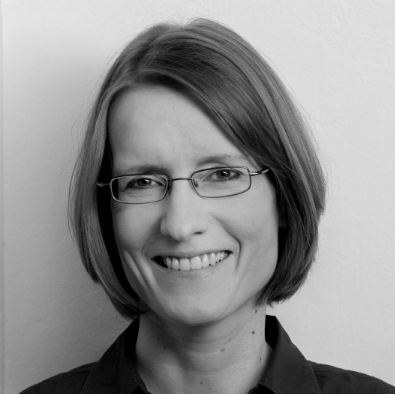JACK DONGARRA EARLY CAREER
AWARD
Award Ceremony & Lecture Series
June 24, 2026
JACK DONGARRA EARLY CAREER AWARD
The ISC High Performance Jack Dongarra Early Career Award and Lecture Series is an annual event that honors the remarkable contributions of Professor Jack Dongarra to the field of high performance computing and the HPC community. It became part of the ISC conference series starting in 2023.
The award is intended for an up-and-coming researcher who has been a catalyst for scientific progress in their field. The researcher should have between 4-10 years of experience after completing their PhD.* (refer to the Nomination & Selection Process section for further details.)
The award focuses on outstanding individuals who have made exceptional contributions to high-performance computing, including numerical algorithms and software libraries, computational sciences, mathematics, and machine learning, and emerging technologies.
The award includes a certificate of recognition and a cash prize of 5,000 Euros.
The recipient will deliver a 25-minute talk in the ISC Jack Dongarra Lecture Series, part of the ISC High Performance invited program. The award ceremony and lecture will take place on Wednesday, June 24, 2026.
FEB 26, 2026
Nomination Deadline
mid of april
End of Selection Process
BEGINNING OF MAY
Award Winner Announcement
Jun 26, 2026
Award Ceremony & Winner's Lecture Series
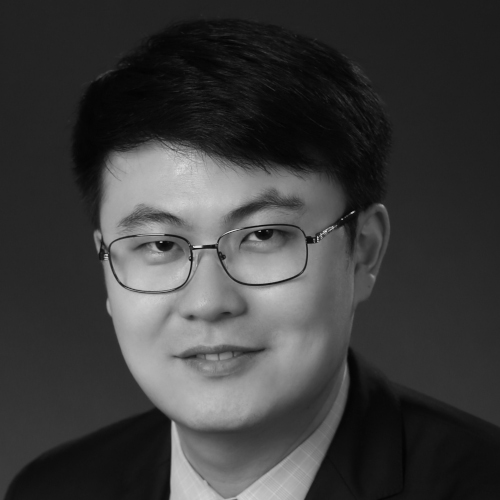
Winner 2025
Dr. Lin Gan of Tsinghua University has been selected as the recipient of the ISC 2025 Jack Dongarra Early Career Award.
The award committee recognized his exceptional contributions to developing scalable algorithms, optimizing performance, and pioneering FPGA-based frameworks for acceleration.
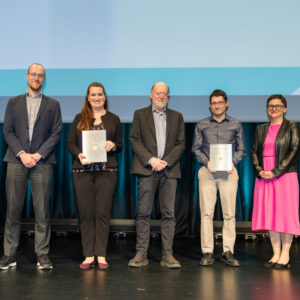
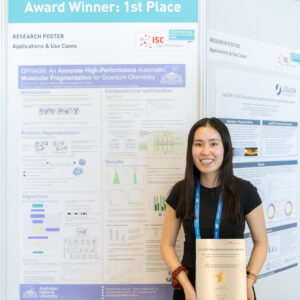
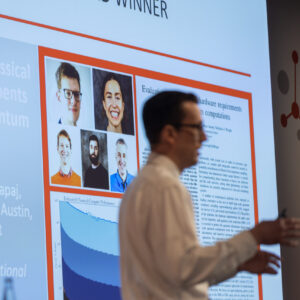
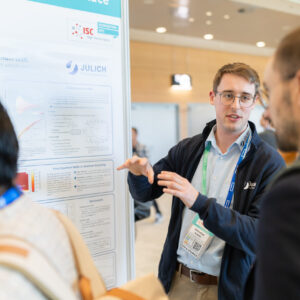
The award is intended for an up-and-coming researcher who has been a catalyst for scientific progress in their field. The researcher should have between 4-10 years of experience after completing their PhD.* (refer to the Nomination & Selection Process section for further details.)
The award focuses on outstanding individuals who have made exceptional contributions to high-performance computing, including numerical algorithms and software libraries, computational sciences, mathematics, and machine learning.
The award includes a certificate of recognition and a cash prize of 5,000 Euros.
THE AWARD INCLUDES A CERTIFICATE OF RECOGNITION AND A CASH PRIZE OF 5,000 EUROS
DIVERSITY & INCLUSION
We welcome nominations of researchers who meet the requirements regardless of gender, nationality, ethnicity, social origin, disability, sexual orientation, etc.
advice
A nomination is a report explaining why a candidate is worthy of receiving an award. The success of a nomination depends first and foremost on the quality of the candidate, but this must be adequately reflected in the description and, where appropriate, in the endorsements. Decisions about candidates are made almost exclusively on the basis of the information contained in the nomination and endorsements, which is why the quality of these documents is of crucial importance.
nomination & selection process
- A nominator proposes a candidate for the award via a Linklings form.
- The researcher should have between 4-10 years of experience after completing their PhD. Nominees must not hold a tenured position at a university or research institution, or a role above the level of an Associate Professor (or equivalent senior leadership) at the time of nomination.
- The nominator can obtain 2-3 external scientific opinions regarding the candidate.
- The nominator nor the nominee is allowed to nominate themselves.
- Committee members are not allowed to nominate candidates but can encourage nominations.
- Previous nominees may be nominated again as long as they are still eligible.
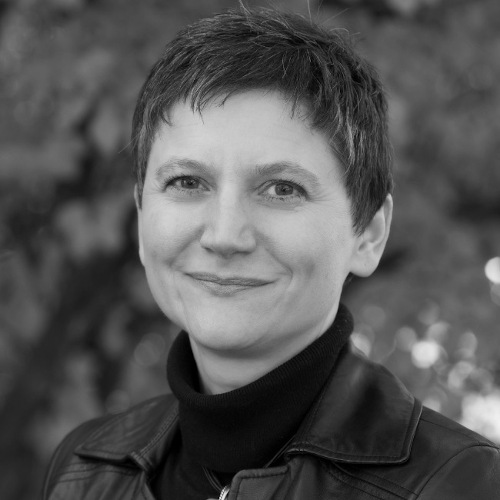
The selection process will be subject to the scrutiny of an international committee headed by Prof Michela Taufer, who co-incidentally holds the Jack Dongarra Professorship in HPC within the Department of Electrical Engineering and Computer Science at the University of Tennessee, Knoxville, USA.
*ISC recognizes the difficulties that families and individuals encounter in their professional journeys. We are open to the possibility of extending the eligibility period by as much as four years for individuals who have become parents, served as primary caregivers, or faced substantial personal challenges following their graduation. Nominees are requested to furnish the graduation date to the nominator and the rationale for seeking an extension beyond the typical 4-10 year post-PhD timeframe in their nomination.
award committee
- Michela Taufer, University of Tennessee, USA (Chair)
- Jack Dongarra, University of Tennessee, USA (Honorary member)
- David Abramson, The University of Queensland, Australia
- Sunita Chandrasekaran, University of Delaware, USA
- Lin Gan, Tsinghua University, China
- Torsten Hoefler, ETH Zurich, Switzerland
- Yutong Lu, Sun Yat-Sun University, China
- Estela Suarez, Jülich Supercomputing Centre, Germany
- Rich Vuduc, Georgia Institute of Technology, USA
publication
The award winner’s lecture will be published in the International Journal of High Performance Computer Applications.
PAST WINNERS
ISC 2025 Award Recipient

Lin Gan is an associate professor at the Yau Mathematical Sciences Center at Tsinghua University in China, where he earned his PhD in computer science in 2016. The award committee recognized his exceptional contributions to developing scalable algorithms, optimizing performance, and pioneering FPGA-based frameworks for acceleration.
Read Full Biography
He has established a set of innovative HPC solutions that enable rapid application deployment and effective performance optimization for a variety of numerical applications. These techniques have been implemented on several supercomputers, such as the Sunway and Tianhe machines, leading to significant improvements in the performance and resolution of numerical applications across a number of domains, such as earthquake simulation, climate modeling, molecular dynamics, and quantum computing.
Recognized for his contributions, Gan received the prestigious ACM Gordon Bell Prize in 2016 and was a finalist for the award again the following year. He also earned the IEEE TCHPC Award for Early Career Researchers in 2018 and the IEEE FPL Most Significant Paper Award in 25 Years. With over 90 publications and nearly 5,000 citations in top-tier journals and conferences like Science, Nature Methods, and SC, his work underscores the importance of HPC in real-world applications and aims to have a lasting impact on the future of supercomputing both in China and globally.
ISC 2024 Award Recipients

Amanda Randles, an Associate Professor in Biomedical Sciences at Duke University’s Biomedical Engineering Department. Randles holds a Ph.D. in Applied Physics from Harvard with a secondary field in computational science, in which she is renowned for her expertise. She has created a circulatory modeling code called HARVEY, which is used for blood flow simulation. The code uses different forms of parallelism to achieve high performance across a wide range of architectures.
Read Full Biography
Her research has made significant progress in the use of HPC in biomedical fields, especially in patient-specific blood flow modeling.
Randles’ work enables the creation of personalized digital twins of the human cardiac system, which can be used to predict and prevent life-threatening health problems. Collaborating with an interdisciplinary team, she has developed new methods for simulations of blood flow that span multiple scales, ranging from the cellular level to systemic levels. She has significantly advanced the capabilities of computational medicine, both spatially and temporally.
In her recent work, she has introduced innovative methods to generate digital twins from wearables-derived data, which extends the capabilities of 3D simulations from several heartbeats to weeks of continuous data. She has developed new methods for capturing cellular interactions across length scales, ranging from centimeters to meters, using the adaptive physics refinement framework.
Randles currently holds 116 US patents in the field of parallel computing.

Edgar Solomonik, an Associate Professor in the Department of Computer Science at the University of Illinois at Urbana-Champaign. The award committee commended him for his impressive theoretical skills and contributions to linear algebra. He was nominated for his unique combination of theory and practice, which promises to lead to new solutions to long-standing problems.
Read Full Biography
Solomonik has authored several excellent research papers, and his work is well-respected by experts in the field of linear algebra.
He has a Ph.D. in Computer Science from the University of California, Berkeley, and is known for his research on developing algorithms for efficient numerical tensor algebra. He completed his undergraduate studies in just two years, earning him the Best Undergraduate Research Project Award from the University of Illinois Urbana-Champaign.
Solomonik has also received a number of other prestigious awards, including the National Science Foundation Career Award, the SIAM Activity Group on Supercomputing Early Career Prize, and the IEEE TCHPC Early Career Researchers Excellence Award in High Performance Computing. The Jack Dongarra Award will further add to his impressive list of accomplishments.
ISC 2023 Award Recipient

Torsten Hoefler, a Professor of Computer Science at ETH Zurich, a member of Academia Europaea, and a Fellow of the ACM and IEEE. The Jack Dongarra Early Career Award acknowledges his significant contributions to converging high performance computing (HPC) and artificial intelligence (AI). His research focuses on performance-centric system design, which includes scalable networks, parallel programming techniques, and performance modeling for large-scale simulations and AI systems.
Read Full Biography
Torsten won best paper awards at the ACM/IEEE Supercomputing Conference SC10, SC13, SC14, SC19, SC22, EuroMPI’13, HPDC’15, HPDC’16, IPDPS’15, and other conferences. He published numerous peer-reviewed scientific conference and journal articles and authored chapters of the MPI-2.2 and MPI-3.0 standards. He received the IEEE CS Sidney Fernbach Award, the ACM Gordon Bell Prize, the Latsis prize of ETH Zurich, as well as both ERC starting and consolidator grants. He recently received the Max Planck-Humboldt medal of Germany.
The committee also wants to give Hatem Ltaief and Mohamed Wahib an honorable mention because of their high-performance computing achievements.

